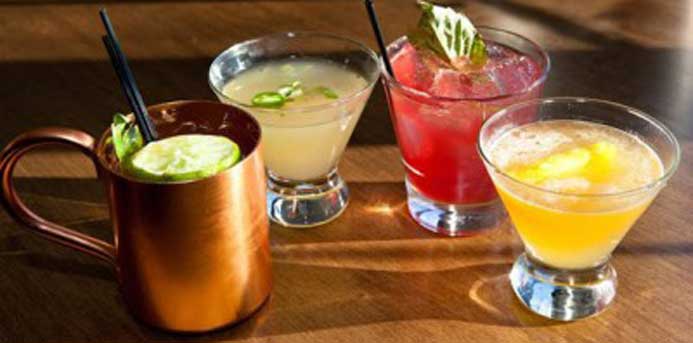From allowances and curfew times to who gets the car this weekend, the unresolved debates between parents and high schoolers are plentiful. One particularly hot issue involving parents and teens is whether or not the drinking age should be lowered.
Donald Zeigler, a representative from Mothers Against Drunk Driving, and Alex Koroknay-Palicz of the National Youth Rights Association, debated this issue last Thursday at the Northfield campus of New Trier. Zeigler, who advocates for keeping the drinking age at 21, used statistics to make his argument, while Koroknay-Palicz, who favors lowering the drinking age to 18, made a more philosophical argument.
Koroknay-Palicz brought statistics showing that adults 21 and over commit the vast majority of driving accidents, and drink the most by far. The media gives us the impression that most car crashes come from drunk high schoolers, when really 62% of all accidents don’t even involve drinking.

In places like Europe, where the drinking age is as low as 16, kids drink alcohol more often, but in much lower quantities, Koroknay-Palicz said. In the U.S., teens are much more likely to binge drink in one night and hurt themselves doing so. Koroknay-Palicz advises parents to give kids a clear message: Drinking is OK, but only if done safely and in moderation.
Zeigler focused on the trickle-down effect—if the drinking age is lowered, then younger siblings would have an easier time getting alcohol. By raising the age, we delay these problems and reduce the number of fatalities caused by drunk driving. He says those who drink earlier are more likely to be heavier drinkers later in life and points out that alcohol education in school is virtually 0% effective in preventing binge drinking and drunk driving (and costs plenty of money).
Here’s what my mom, Martha Warner, had to say after the debate:
Should teens be allowed to drink legally at age 18? No. Our teens have enough temptation, let’s not make it easier for them to get their hands on alcohol.
Zeigler showed study after study suggesting that the law that sets the drinking age at 21 has saved lives since it was enacted in 1975.
If I can remember way back to college, we had parties where the guys would make a disgusting concoction of Welch’s grape juice concentrate and alcohol. Some would drink it until throwing up, and that didn’t take too long. Did the impetus to drink ourselves sick come from the alcohol being “forbidden fruit?” If we could have legally obtained better alcohol, would we have responsibly sipped a merlot? I think not. What the heck … we were 19!
If teens want to get alcohol, they’ll figure out a way to do it. I’m in favor of making it a tougher, not easier. Statistically, more of them will stay alive that way, and isn’t that the point?
As an 18-year-old, I feel most of the debate was centered around drunk driving and driving accidents. So the real issue seems to be the driving age. It’s almost as easy to get a driver’s license as it is to buy a scooter. There are many times I’ve wondered whether or not I’ll make it out in one piece after getting in the car with a friend. While I think raising the driving age would be difficult, it’s necessary. It’s up to parents to teach their kids to drink responsibly, while the policy concern should be the driving age.

